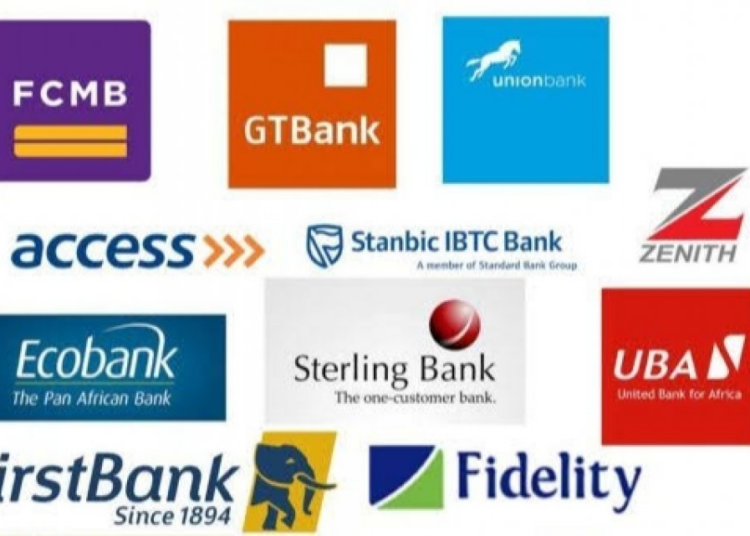
The collective Deposit Money Banks (DMBs) in the country had total assets of N121 trillion as at the end of 2023 financial year, which is equivalent to half of the national gross domestic product(GDP).
This is even as Nigerian banks and other financial services accounted for 4.6 per cent of GDP meaning that, the nation’s financial institutions account for approximately N5 for every N100 generated nationally in 2023, up from about N4 in 2022.
Speaking at the official launching of the State of Enterprise (SOE) 2024 Report held on Monday in Victoria Island, Lagos, the chief executive officer(CEO) of EnterpriseNGR, Obi Ibekwe, revealing the report published by her firm, acknowledged the significantly supportive role of the Banking sub-sector in facilitating necessary funds to support businesses and the productive sector., disclosing that, the sub-sector’s role in tax revenue was equally commendable, ranking third out of the 23 economic sectors, in income tax and VAT generation to the government coffer.
“Nigeria’s Financial and Professional Services (FPS) sector recorded improved performance in 2023. The sector had significant positive impacts on people, businesses and the economy across the nine classified sub-sectors: Banking, Insurance, Capital Markets, Asset Management, Pensions, Non-interest Finance, FinTech, Professional Services and Sustainable Finance,” she pointed out.
Adding that the Insurance sub-sector saw impressive momentum in 2023, with gross premium written reaching a N1 trillion mark, though this growth was driven by a regulatory intervention, such as increased motor insurance rates, she added that, the the sub-sector paid 36 per cent more claims than in 2022, an indication that the Insurance sub-sector is rising to its responsibility to protect policyholders against adverse financial and economic consequences.
While Capital Markets experienced significant expansion, with the All Share Index (ASI) increasing by 46 per cent, according to the report, the EnterpriseNGR CEO stated that, the last time the markets achieved something close to this was in the wake of the pandemic in 2020.
To her, “the market capitalisation jumped 47% to about N41 trillion, facilitating substantial trading transactions and business activities. When you look at performance by sector, the Oil & Gas sector emerged as the growth leader (recording a phenomenal 126 per cent gain). The performance of the Oil & Gas sector can be linked to policy changes such as the suspension of subsidies.”
Closely linked to Capital Markets is the Asset Management sub-sector, which drives much of the activity in the markets, she said, adding that the sub-sector, known for managing assets, is also laying the foundation for national future growth through collective investments. The total net asset value (NAV) for all collective investment schemes soared by almost 50% in 2023, and the number of registered mutual funds increased to 144 from 133 in 2022. This growth highlights the growing confidence in the markets, she noted.
Acknowledging that the pensions sub-sector was one of Nigeria’s regulatory success stories, steadily building a secure future for millions of employees, she said, with over 10 million contributors, the sub-sector has accumulated over N18 trillion in investments, with 65 per cent of this invested in government securities, noting that, in 2023, the sub-sector had paid over N400 billion in retirement benefits, and about N36 billion to contributors temporarily out of jobs, in 2023.
“The sub-sector boasts a market size worth N2.5 trillion, growing by N1 trillion in a year. Strong demand for ethical investments is driving numbers in the sub- sector. A key example is the issuance of a N150 billion sovereign sukuk in 2023, which was oversubscribed by more than 400 per cent. The sub-sector is aligning financial practices with ethical values to grow national investments,” she emphasised.
Earlier, the director of Policy and Public Affairs, Lami Adekola, while speaking on this report, noted that, the Nigeria’s FinTech sub-sector is about inclusion, accessibility, and empowerment, saying, with digital payments and lending on the rise, FinTech is connecting millions of Nigerians to financial services, helping them meet their everyday needs at reduced costs compared to traditional banks.
Mobile money operators, according to him, processed 140 per cent more transaction values N46.6 trillion in 2023 compared to N19.4 trillion in 2022 while Personal loans saw a significant rise of 19 per cent, increasing to N2.28 trillion from N1.92 trillion between the second and third quarters of 2023.
“Professional Services comprising firms such as accountants, management consultants, and legal advisors, played a crucial role in helping businesses navigate challenges and seize opportunities. In 2023, their contributions to the economy were substantial, supporting various industries and playing a critical role in economic integration, revenue generation, risks and talent management. The professional service firms are a significant part of the Professional, Scientific and Technical Services.
“Finally, the Sustainable Finance sub-sector continues to attract growing global interest, with the Nigerian market participating steadily. Nigeria’s green bond stock is valued at N47.8 billion, with a 69% share in corporate green bonds and the remaining 31 per cent in Federal Government of Nigeria (FGN) green bonds. The steady growth in Sustainable finance reflects Nigeria’s commitment to sustainable development, which is about investing in a future where economic growth and environmental stewardship go hand in hand,” he emphasised.
The performance of the FPS sub-sectors in 2023, according to him, underscores the pivotal role of FPS in Nigeria’s economy, particularly its contributions to governments, businesses and people, even as he said, FPS sector has the potential to drive Nigeria’s transformation into Africa’s premier financial centre.
EnterpriseNGR is a dynamic, member-led organisation at the forefront of championing the advancement of the Nigerian Financial and Professional Services (FPS) sector. With a steadfast commitment to fostering a conducive policy environment, EnterpriseNGR advocates the growth and development of all the FPS sub-sectors which are: Banking, Insurance, Capital Markets, Asset Management, Pensions, Non-interest Finance, FinTech, Professional Services (Legal Services, Accounting and Management Consulting), and Sustainable Finance, to position Nigeria as Africa’s premier financial centre.
Copied
